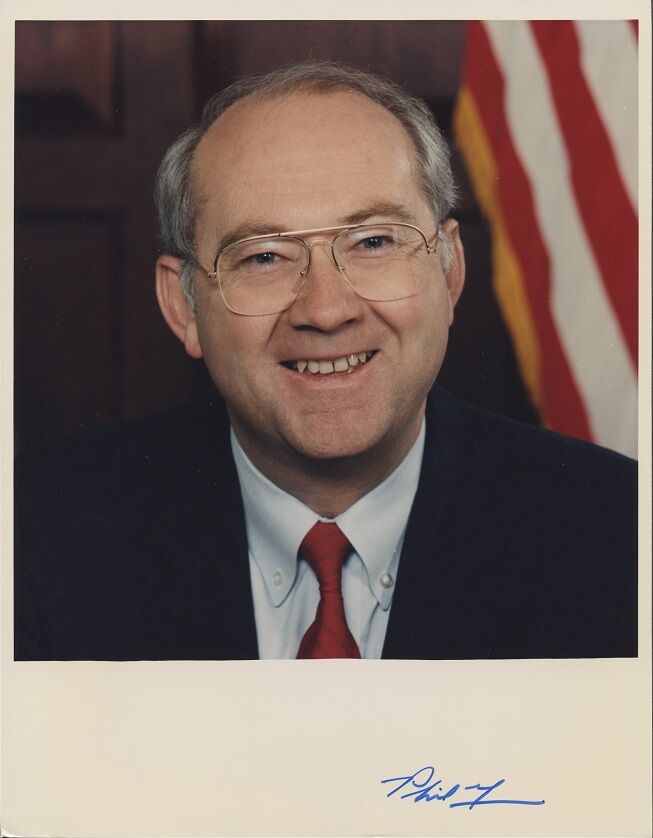-40%
1897 US SENATOR SUMTER SOUTH CAROLINA CIVIL WAR CONFEDERATE SGT AUTOGRAPH SIGNED
$ 5.27
- Description
- Size Guide
Description
JOSEPH HAYNSWORTH EARLE(1847 - 1897)
US DEMOCRATIC PARTY SENATOR FROM SUMTER, SOUTH CAROLINA FROM MARCH TO MAY 1897,
MEMBER OF THE SOUTH CAROLINA STATE HOUSE OF REPRESENTATIVES 1878-1882,
STATE SENATOR FROM SC 1882-1886,
ATTORNEY GENERAL OF SOUTH CAROLINA 1886-90,
ELECTED SC CIRCUIT JUDGE IN 1894
&
CIVIL WAR SGT. ENLISTED IN THE CONFEDERATE ARMY (AGE 17) IN CHARLES' BATTERY, KEMPER'S ARTILLERY, JOHNSON'S ARMY.
At war's end, Sgt. Earle chose to desert rather than surrender with his company to the Union Army, and a similar stubborn spirit marked his ensuing public life, as he became known for fighting, feuding, and harassing the ‘
carpetbagger’
element.
<
<>
>
HERE’S EARLE’S SIGNATURE REMOVED FROM A 19
th
CENTURY AUTOGRAPH ALBUM, DATED and SIGNED:
“Jos. H. Earle
S. C.”
The document measures 7¼” x 2” and is in very fine, clean
condition
.
<
<
::
>
>
BIOGRAPHY OF THE HONORABLE
JOS. H. EARLE
Joseph H. Earle
, U.S. senator. Earle was born in Greenville on April 30, 1847, the youngest child of Elias Earle and Susan Haynsworth. Orphaned at five, Earle was raised in Sumter District by his maternal aunt and her husband. He left a Sumter academy in 1864 to enlist in the Confederate army. After the Civil War, he attended Furman University from 1866 to 1868 but left without obtaining a degree. On May 19, 1869, he married his cousin Anna M. Earle of Anderson. The couple had nine children. Admitted to the bar in 1870, Earle began a law practice in Anderson. He moved his practice to Sumter in the mid-1870s and then to Greenville in 1891.
In 1878 Earle was elected to the state House of Representatives from Sumter County, serving until 1880. He served in the state Senate from 1882 to 1885 and as attorney general of South Carolina from 1886 to 1890. Conservative Democrats put forth Earle as a candidate for governor in 1890, but his moderate demeanor was no match for the popular bombast of the eventual winner, Benjamin R. Tillman. In 1892, in the spirit of party unity, Earle declined another nomination for governor. An appreciative Tillmanite majority in the legislature rewarded Earle by electing him as a circuit judge in 1894, and he served in that capacity until January 1897.
In 1896 Earle defeated the unpopular John Gary Evans for the Democratic nomination to the U.S. Senate in the state’s first direct primary. Earle’s victory was an initial step toward healing the extreme factionalism that had dominated South Carolina politics for most of the previous decade. Unfortunately, Earle’s tenure as senator lasted only weeks, ending when he died suddenly on May 20, 1897, of Bright’s disease (a kidney disorder). He was buried at Christ Church Cemetery in Greenville.
Bailey, N. Louise, Mary L. Morgan, and Carolyn R. Taylor, eds.
Biographical Directory of the South Carolina Senate, 1776–1985.
3 vols. Columbia: University of South Carolina Press, 1986.
Simkins, Francis Butler.
Pitchfork Ben Tillman: South Carolinian.
Baton Rouge: Louisiana State University Press, 1944.
Written by
Michael Robert Mounter
Citation Information
The following information is provided for citations.
Title Earle, Joseph Haynsworth
Coverage April 30, 1847–May 20, 1897
Author Michael Robert Mounter
Keywords U.S. senator, Furman University, began a law practice in Anderson, candidate for governor, lost to Tillman, circuit judge,
Website Name South Carolina Encyclopedia
Publisher University of South Carolina, Institute for Southern Studies
Original Published Date May 17, 2016
<<>>
JOSEPH HAYNSWORTH EARLE
A BIO WITH A LITTLE MORE COLOR
US Senator from South Carolina. As a teenager during the Civil War he served with the Confederate Army in Charles' Battery, Kemper's Artillery, Johnson's Army, rising to the rank of Sergeant. At war's end he chose to desert rather than surrender with his company to the Union Army, and a similar stubborn spirit marked his ensuing public life, as he became known for fighting, feuding, and harassing the Carpetbagger element. In 1867 he was forced to leave South Carolina's Furman University for being unable to pay his tuition; instead he taught school for two years, studied law on his own, and was admitted to the bar in 1870. He practiced law in Sumter from 1875 to 1892, during which time he was a member of the State House of Representatives (1878 to 1882), the State Senate (1882 to 1886), and Attorney General of South Carolina (1886 to 1890). Earle declined the Democratic Party's nomination for Governor in 1888 and ran unsuccessfully for the office in 1890. Two years later he returned to his hometown of Greenville and was elected a circuit court judge (1894). In 1896 he was elected to the United States Senate but served for only two months, from March 4, 1897 until his sudden death at 50.
I am a proud member of the Universal Autograph Collectors Club (UACC), The Ephemera Society of America, the Manuscript Society and the American Political Items Collectors (APIC) (member name: John Lissandrello). I subscribe to each organizations' code of ethics and authenticity is guaranteed. ~Providing quality service and historical memorabilia online for over twenty years.~
WE ONLY SELL GENUINE ITEMS, i.e., NO REPRODUCTIONS, FAKES OR COPIES!










